The publishing industry has been in chaos for the past few years. The digital world brought with it too many questions, and no one was willing to openly embrace the new opportunities that came with rapidly changing technology. Instead of being innovators, the big publishers fearfully dipped their toes in the pool, only to quickly pull them out again – it was too cold and too scary out in the unknown.
Jonathan Franzen is an ass – aka what all the fuss is about
Now, critically-acclaimed US author, Jonathan Franzen, has chimed in on the fear mongering. He has written an overblown essay (which you can read on The Guardian) on the impending apocalypse courtesy of Amazon’s Jeff Bezos (‘Jeff Bezos of Amazon may not be the antichrist, but he surely looks like one of the four horsemen.’). In his essay’s ‘summing up’, Franzen notes that with each new generation, there are bound to be changes in technology, culture, and viewpoints. And yet, for the bulk of the essay he is damning the changes happening in the publishing industry.
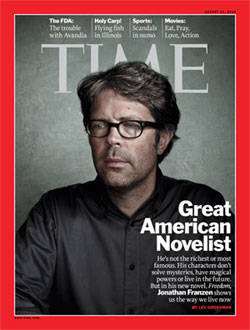 His argument is that with digital publishing growing in dominance, the internet-savvy, social media freaks will be the ones that succeed, instead of his ‘traditional’ idea of a writer. According to Franzen, these social media personalities are false, their opinions less valid than a traditional writer, with far less talent. I’m curious, Mr. Franzen, what exactly is the difference between posting an article onThe Guardian and posting it on a blog? Is it simply that a blog doesn’t have a print counterpart? Will a newspaper always be available in print, do you think?
His argument is that with digital publishing growing in dominance, the internet-savvy, social media freaks will be the ones that succeed, instead of his ‘traditional’ idea of a writer. According to Franzen, these social media personalities are false, their opinions less valid than a traditional writer, with far less talent. I’m curious, Mr. Franzen, what exactly is the difference between posting an article onThe Guardian and posting it on a blog? Is it simply that a blog doesn’t have a print counterpart? Will a newspaper always be available in print, do you think?
Amazon wants a world in which books are either self-published or published by Amazon itself, with readers dependent on Amazon reviews in choosing books, and with authors responsible for their own promotion. The work of yakkers and tweeters and braggers, and of people with the money to pay somebody to churn out hundreds of five-star reviews for them, will flourish in that world. But what happens to the people who became writers because yakking and tweeting and bragging felt to them like intolerably shallow forms of social engagement? What happens to the people who want to communicate in depth, individual to individual, in the quiet and permanence of the printed word, and who were shaped by their love of writers who wrote when publication still assured some kind of quality control and literary reputations were more than a matter of self-promotional decibel levels?
I am one of these writers who has a blog and a lot of social media presence. Why do I have these things? I don’t necessarily believe that these are deep and meaningful ways to communicate, but what I do believe is that success in the new world of publishing, I need them. So perhaps, in a way, I agree with Franzen. Writers that will likely succeed in the new digital world are those who invest their time in an internet presence.
Before the times of building an internet following, how did one get noticed by a publisher or an agent? Networking! It may have been in person, you might have had to slog from door to door with printed CV’s and copies of your novel, but you still had to do it. Or maybe you wrote endless letters to agents (although, most agents still prefer to receive hardcopy submissions in the digital age)? Why is that so different to trying to build a social media following?
Like many writers, I’m not very confident or outgoing. In fact, I’m known for my general dislike of people. If I were a character in the Star Wars universe, I would be Obi-Wan Kenobi – the weird old hermit everyone thinks is crazy. I don’t particularly like the idea of having to sell myself or my work, but I have to. I might have to do this on a personal, one-to-one level with an agent or publisher, or do this with a large (hopefully) online audience.
A few years ago I attended a talk at the London Book Fair where Meg Rosoff took questions on the publishing industry. She mentioned that her publisher had requested she get a website and post regularly. They felt that it would go a long way to building her audience. Franzen notes this as well: ‘…so the physical book goes on the endangered-species list, so responsible book reviewers go extinct, so independent bookstores disappear, so literary novelists are conscripted into Jennifer-Weinerish self-promotion, so the Big Six publishers get killed and devoured by Amazon.’
 But again, I have to ask, why is this necessarily a bad thing? Changes in the industry happen – in any industry. Back when Dickens was writing, many people could not afford entire novels, so he wrote in a serialized form. This is why his novels have a tendency to read like soap operas – with cliff hangers at the end of practically every chapter. It is possible that Dickens may have preferred – or been more skilled at – writing in a full length novel structure, but that doesn’t matter. He wrote in a way that fit the format available to him. And he published, sold, and (presumably) marketed that content in the best way he could for the time.
But again, I have to ask, why is this necessarily a bad thing? Changes in the industry happen – in any industry. Back when Dickens was writing, many people could not afford entire novels, so he wrote in a serialized form. This is why his novels have a tendency to read like soap operas – with cliff hangers at the end of practically every chapter. It is possible that Dickens may have preferred – or been more skilled at – writing in a full length novel structure, but that doesn’t matter. He wrote in a way that fit the format available to him. And he published, sold, and (presumably) marketed that content in the best way he could for the time.
A lot of creative people dislike acknowledging the commercial nature of the work, but at the end of the day, any creative venture is ultimately for some kind of benefit (most commonly monetary). I was reading the latest Rolling Stone and came across an amusing article on MGMT. They were quoted saying, ‘So many musicians have this really commercial sensibility about everything. That made me really disgusted. Looking at music as a product, talking about what we were doing like a brand? We had never thought about music that way.’ They may have never thought about music that way, but it is an essential part of music – the industry. Everyone needs something to live on. If you are lucky enough to be able to do what you love, create wonderful works of art as your living, why be so petulant about the idea of it commercially benefitting you? Grow up! Being a writer, a musician, a painter, etc, is a career just like any other. It is commercial and you will need to work within the industry or group you fit into (sure, there’s room for innovation and individuality, but there will always be limitations).
The gatekeepers: They’re only after money
Perhaps I’m missing the point. Maybe Franzen is attacking a decline in the quality of the content being published. I admit that I often look down on self-published work, as I know that they usually haven’t been through the same rigorous copyediting process and haven’t been vetted by a professional gatekeeper whose opinion I trust. But can we really trust these gatekeepers? Let’s take a look at 50 Shades of Grey. This appallingly badly written series of books has become an international best-seller. EL James is the highest earning author for the past year, and has made the top 5 of highest earning celebrities. Originally self-published, it was picked up by Random House for traditional publication. Random House saw an opportunity and they took it, helping them to reach the top spot for revenue of publishers in the last year.
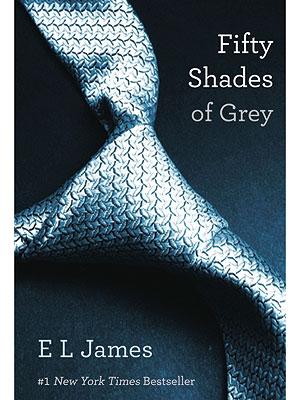 James had originally submitted her novels to Random House, along with many other agents and publishers, before going down the self-publishing route. Her success happened independent of the big publishers, and it happened in an online-only format. Random House took on a book they had not believed in until it had already proved successful, in order to make themselves a whole lot of cash. And who could blame them? But if these traditional publishing gatekeepers are going to let through the trash along with literary brilliance, we can’t rely on them for quality.
James had originally submitted her novels to Random House, along with many other agents and publishers, before going down the self-publishing route. Her success happened independent of the big publishers, and it happened in an online-only format. Random House took on a book they had not believed in until it had already proved successful, in order to make themselves a whole lot of cash. And who could blame them? But if these traditional publishing gatekeepers are going to let through the trash along with literary brilliance, we can’t rely on them for quality.
It is true that it is possible to buy good reviews, but the discerning consumer should be able to tell the difference. Word of mouth has always been what drives a truly successful book – and this hasn’t changed. People take to their social media platforms to tell others what they loved, what they hated, and what they were indifferent to. This is a good thing. Yes, it is unfortunate that you can’t rely on online customer reviews as reliable. However, as Franzen points out, this might be an opportunity for a resurgence in the profession of book reviewing: ‘Maybe the internet experiment in consumer reviewing will result in such flagrant corruption (already one-third of all online product reviews are said to be bogus) that people will clamour for the return of professional reviewers.’ Why he thinks a blogger’s view is less valid than a reviewer for a reputed newspaper or magazine is beyond me, however.
The future of publishing
The point I believe Franzen is missing is that the big six publishers should be taking their cues from Amazon, rather than running scared. If they embraced some of the same ideologies, their place in the future of book publishing might not be quite so precarious. Look at the music and film industries – the big labels and studios eventually had to take part in the very things they initially condemned. Spotify and Netflix, along with other initiatives in these industries that are more focused on a service rather than simply content, are thriving. When is the publishing industry going to get a clue?
A few of the big publishers are starting to come around. For instance, Penguin has recently launched a joint project with Spec Savers, called the ‘#youdunnit’ project. Crime fiction fans have been asked to contribute ideas for a crime story through Twitter. The best ideas will be selected and given over to three different crime novelists. The three individual takes on the same basic details will be published for free in eBook format. The power of publishers and writers rests with the readers, and it is nice to see a publisher acknowledging this.
 Pop Verse Pop Culture Universe
Pop Verse Pop Culture Universe
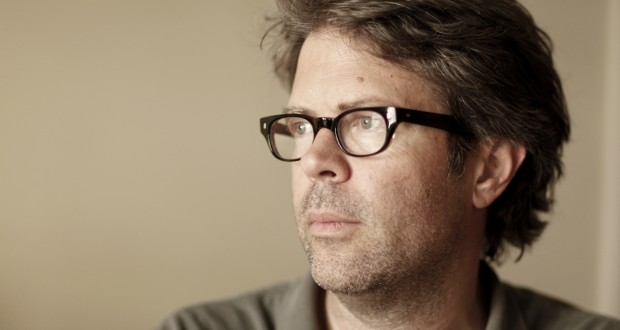



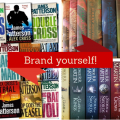
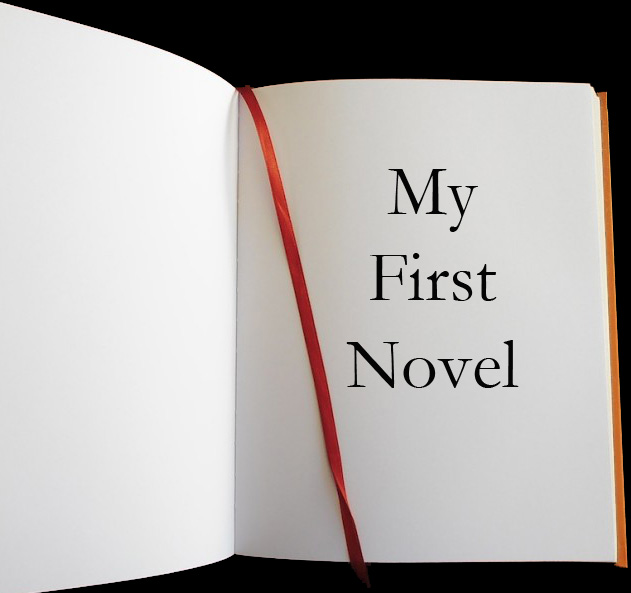

Reminds me of this XKCD Comic.
http://xkcd.com/1227/
It smacks of “things were better in my day”…